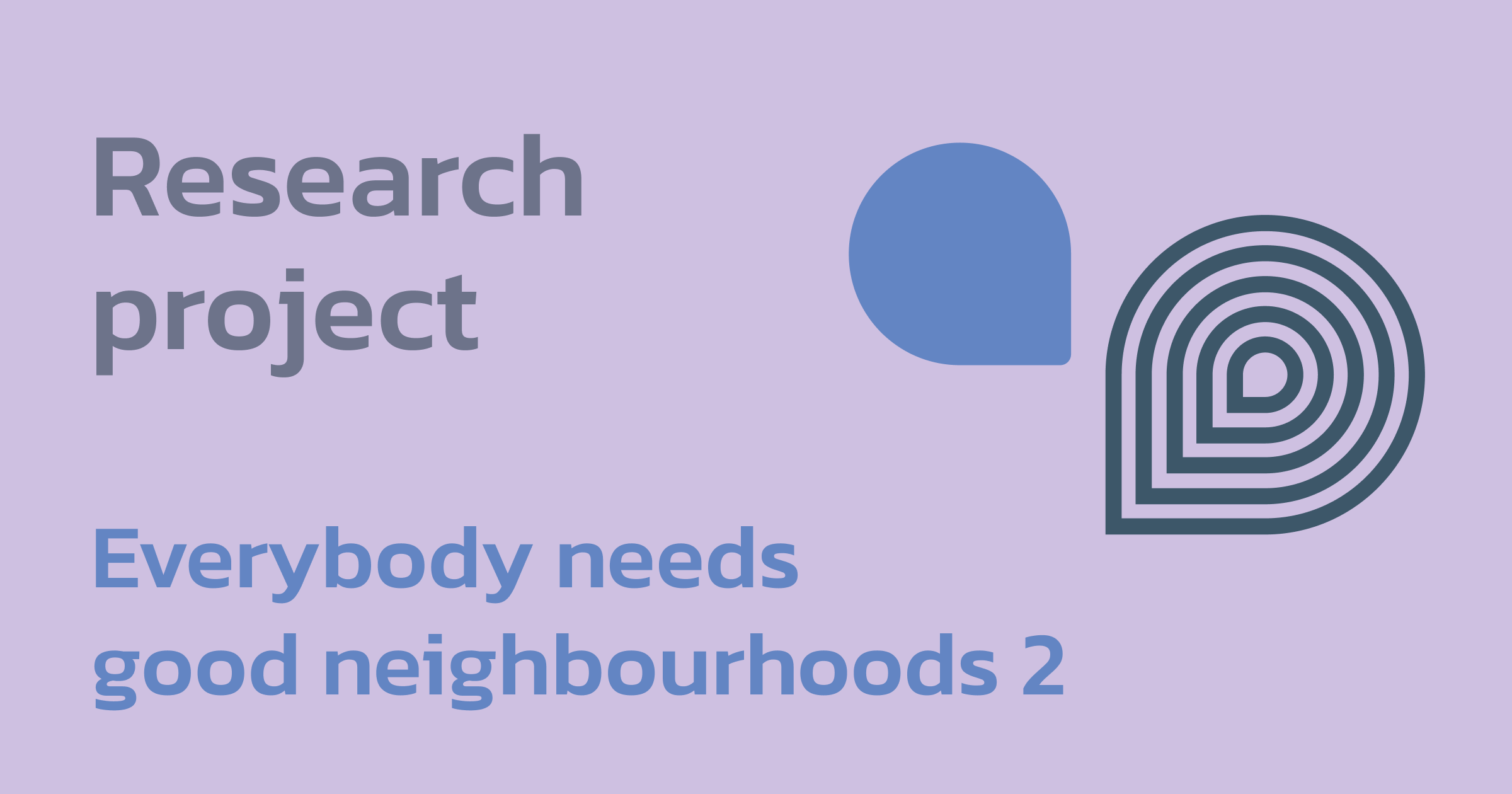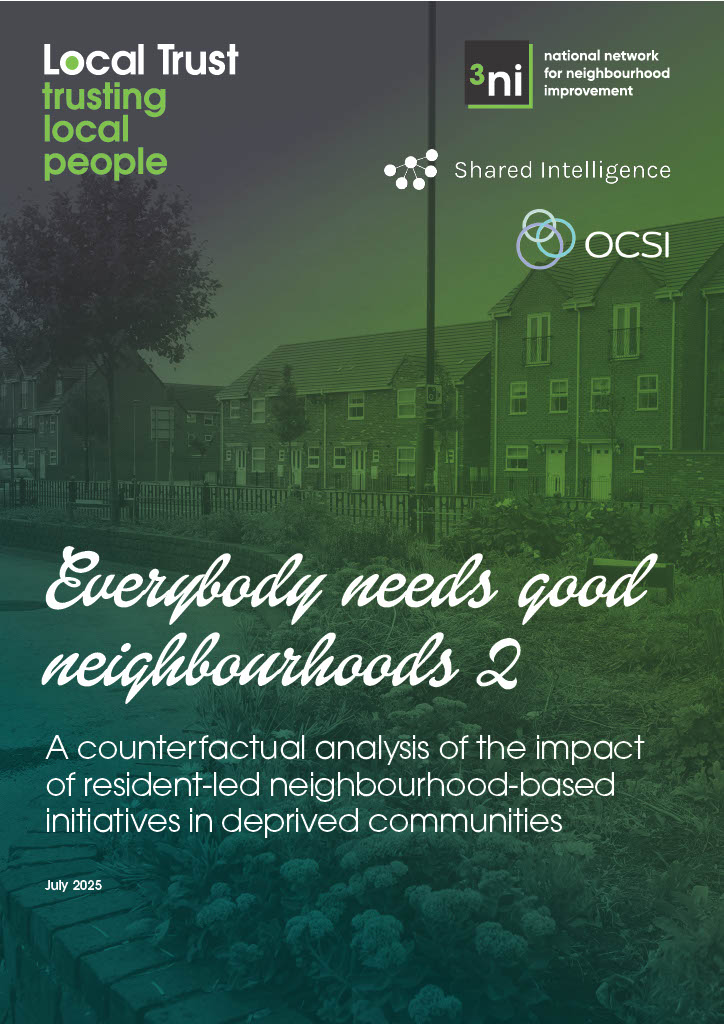
We are proud to have contributed towards the Everybody needs good neighbourhoods 2 report alongside Local Trust, 3ni and Shared Intelligence which was launched at the 2025 Local Government Association (LGA) Conference.
The study is the first of its kind, examining 29 deprived neighbourhoods using long-term data – comparing those with a Big Local programme (the largest community-led regeneration initiative in the UK) with 29 similarly deprived areas without any neighbourhood-led initiatives (NBI), over a 10-year period.
This 10-year comparison has given us a robust counterfactual, which reveals that neighbourhoods funded through Big Local see statistically significant improvements where it matters most.
The full report is available to read on the Local Trust website.
Business activity grows faster
Areas with NBIs saw a 42% increase in local business units versus 22% in benchmark areas – boosting economic growth and job opportunities for local residents.
Child poverty has risen less
Between 2014 and 2021, the percentage of children in low-income households increased by 5.5 percentage points in areas with neighbourhood-led initiatives, compared with 8 percentage points in comparable areas indicating that local, place-based action can help mitigate national trends.
Crime reduction is greater
Overall crime rates fell by 19.1 offences per 1,000 people in areas with neighbourhood-led initiatives compared to just 10.5 in benchmark areas, with the largest reductions in overall crime and criminal damage.
Our contribution was centred on providing robust and consistent quantitative research for Everybody needs good neighbourhoods 2.
Working alongside the other organisations, we identified ten-year longitudinal datasets that could be used to match Big Local neighbourhoods to 29 statistically similar comparators.
Building on our work for the previous report – we expanded the sample size, checked data quality and produced the charts, tables and significance tests that demonstrate how resident-led regeneration areas fare better over time than those without any NBIs.
Neighbour-based initiatives (NBIs) are resident-led projects that tackle social, economic and environmental issues at neighbourhood scale. For Everybody needs good neighbourhoods 2 we paired 29 wards hosting Big Local or similar NBIs with 29 statistically comparable wards that showed no evidence of neighbourhood-based working.
Big Local wards were selected first, then benchmark areas were long-listed on 2019 Index of Multiple Deprivation scores and refined using the Office for National Statistics Output Area Classification to match socio-demographic profiles. Shared Intelligence and Local Trust verified the absence of locality working through desk research, stakeholder interviews and on-the-ground checks.
The study used a difference-in-differences (DiD) design to compare trends between the two groups across a 10-year period, applying 95% confidence intervals to test statistical significance.
Seven indicators were chosen because consistent, small-area data was available: people claiming out-of-work benefits, children in low-income households, overall crime, burglary, criminal damage, average property price and VAT-registered local business units
The enlarged sample size allowed robust significance testing that was not possible in the 2023 pilot study. You can find more information on our approach within the full report.
Find out more about our research services.
London is often characterised as a city of wealth and opportunity, yet…
More
The Welsh Index of Multiple Deprivation (WIMD) is the official measure of…
More